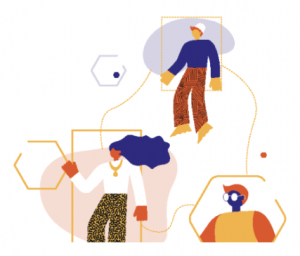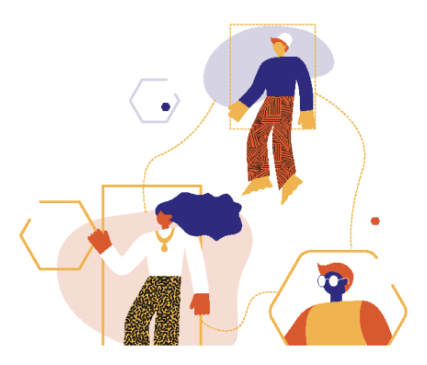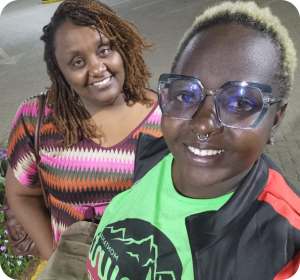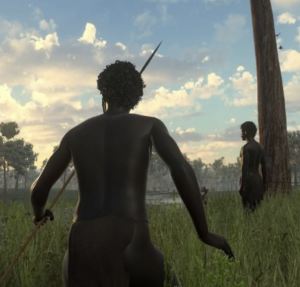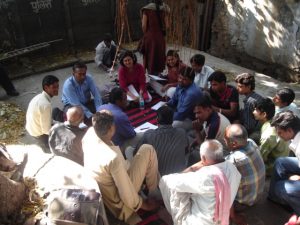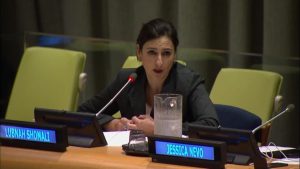Interview with: Stella Busolo Khachina Discussing: Usikimye and addressing...
Read More4. Community Organising in Syria
Discussing: Challenges of Community Organising in Syria
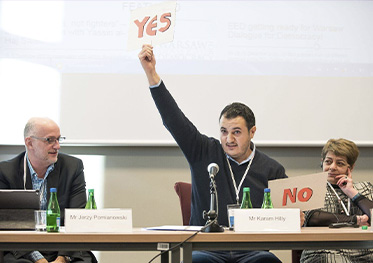
- Timecode
- Transcription
- Resources
- Guest
[02:54]
His childhood and life in Aleppo
[04:29]
Motivation to do community work
[06:00]
Importance of community work for the Syrian context
[07:11]
Youth of Change: a network of community organizers
[08:08]
How it’s been like for Karam to do this work
[10:20]
Door Beyond War & Youth of Change
[11:43]
Convincing community members to get involved
[13:19]
Appropriateness of Karam’s work to this type of context
[15:15]
Mutual exchange, training in a warzone and building social capital
[17:56]
How donors & NGOs get development wrong and how they can improve their work
[19:28]
The challenges of working with youth
[22:58]
Syrian experiences of aid, self-sufficiency and the need for better aid programming
[27:33]
Examples of Karam’s work in Syria
[33:23]
Dealing with spoilers who want to disrupt efforts
[35:40]
Hope and vision for Syria in the future
Deborah Cummins – [0:03]
When we want to connect with each other, how do we cross the great divide of different worldviews, cultures or religions? How can we work together effectively? Well, first, we need a bridge.
Welcome to Bridging Peoples. In this Bridging Peoples podcast, we explore the human side of aid and development. Join us as we talk with researchers and practitioners about their work around the globe. I’m your host, Deborah Cummins.
2019 is a year of expansion for Bridging Peoples. And I’m excited to announce that soon we’ll be launching the Bridging Peoples online Academy, a dedicated space to help you improve your development impact at the local level. Wherever you work in the world. It isn’t live yet, but it will be over the next few months. So if you’re interested, give us your name and email address at http://bridgingpeoples.com. And we’ll let you know when the Academy is live.
And if we’re lucky enough to make it onto your training calendar this year, will be delighted to have you. In the meantime, sit back and enjoy this interview.Before we get started, a quick word of warning. This episode contains discussion of some violence. So if you have little ones around and you don’t want them to hear, grab your headphones now.
Deborah Cummins – [00:40]
What’s it like doing community work in a war zone? Today I’m talking with Syrian community worker, Karam Hilly, who has experienced this firsthand.
Karam Hilly – [00:45]
“I don’t know if you can imagine how a trainer or community organizer will go into community in a war. Where there is no structure, no resources. And you will tell people, let’s contribute. Let’s mobilize our resources. It will be weird. So to convince them that he can really make change, in their society, it really requires a huge change in their mindset. But practices really can change.”
Deborah Cummins – [02:29]
In this interview, we talk about some of the pitfalls of classic aid delivery, the importance of working in partnership with community members affected by war. And finding hope, in some of the most difficult of circumstances. I had the great pleasure of getting to know Karam Hilly when I was doing some research on the impact of aid in northern Syria in 2015. He immediately impressed me with his intelligence, his humanity and his integrity. And his vision for working with community members affected by war.
Welcome Karam, and thank you for joining me.
Karam Hilly – [03:05]
Oh thank you Deborah for having me with you.
Deborah Cummins – [03:08]
Now you know I like to begin discussions by beginning with the personal, with who we are as people. So can you tell me a little bit about your childhood?
Karam Hilly [03:16]
I grow up in Aleppo city in Syria, in a small family with three sisters in small neighborhood in Aleppo.
Deborah Cummins – [03:31]
Can you share with us some of your memories of Aleppo at that time?
Karam Hilly – [03:35]
I have a lot of memories about childhood. About how I would go out to with friends. The school, the neighborhood. The most important memory that I always try to protect and keep is of the old city, which is like one of the oldest cities in the world. Walking in the old city where you can see the original people from Aleppo: the shops, the market, the old houses, the Citadel. There were simple people, working so hard with the biggest smile on their face. Actually now, after eight years of war in my country, where I cannot really reach where, the place where I grow up, it’s really a motivation to work hard to do something that enables me at other people to go back there one day.
Deborah Cummins – [04:39]
And what motivated you to do community work?
Karam Hilly – [04:43]
Prior to the revolution, I was focusing more on my study. I was studying marketing. After graduation from university, I started to work with UNDP as loan officer. I was supporting poor people in the most poor communities in Aleppo and Idleb, with people, simple people, working in a farm, trying to develop the life conditions for themselves. They are trying to create decent work.
So I started late, at the age of 24 or 25, to really discover this new life for me in community development, by going to the village, start to talk to the people, start to establish local committees from the people there. Try to understand their real needs, and to analyze their real problems. To know how we can mobilize their resources, and give them some seed funds to work on the development on their village.
Deborah Cummins – [06:07]
Okay, and I know your passion for community work. So can you share with us: why do you think that community work is so important for the Syrian context?
Karam Hilly – [06:20]
Yeah, actually, after the revolution, I felt the importance of mobilizing people in the grassroots of the community. So, I decided to work at community organizing, because we started to lose systems and structures in the Opposition areas. So I contributed to some training inside Syria, about community organizing. Where we started to develop leadership skills for grassroots inside Syria, to enable them to use the resources, or the resources that they have, to create the power they need to reach the vision or the change they want in the future of Syria.
So I first start to work on this tool since 2011. But the real Syrian participation was in 2014. Actually, when I started with my colleagues in Syria, a network of community organizers called Youth of Change, which includes almost 300, committee organizers, who get training about community organising and I think, and different other tools like community engagement, community project management, conflict resolution, social responsibility, and active citizenship. So we started this kind of organizing project for ourselves, to really change the mindset of people inside Syria, to tell them that if you are organized, you can really use your resources in a more efficient manner.
Deborah Cummins – [08:16]
And what’s it been like for you, personally, doing this work?
Karam Hilly – [08:22]
It was a challenge, when you do that in a country where people don’t have the freedom of expression and the freedom of speech. I got detained by the Regime for almost 60 days, because of my work in development and youth empowerment. Because it’s not allowed to speak out loud in Syria, especially after 2011. It was so risky for the Regime to let people speak, to talk to the media, or talk to youth, or talk to the international community. So after 2014, in May 2014, I came here to Turkey. I started to work here with an international organization to empower and build the capacity of local councils, local communities, youth, major social initiatives. So at the end of 2015 and 2016, I spent most of my time traveling in Syria, working with youth. Until last year, I decided to get married. I have a very nice, small family, of me, my wife, and a little baby.
Deborah Cummins – [10:06]
Oh, congratulations!
Karam Hilly – [10:07]
Thank you so much. So now I’m living with my wife and my son. And my cousins too, my mom, my sisters, we are living together here in the last year.
Deborah Cummins – [10:27]
Great. Can we shift gears a little bit? Can you share with us a little about Door Beyond War, and the Youth For Change network?
Karam Hilly – [10:37]
Door Beyond War is a newly established organization in Turkey. We started as volunteers in Syria. We were part of, first of all, Musahama Initiative, which is like ‘Contribute Initiative’ in Arabic. So we asked people to contribute, and we encourage people to contribute to solve their problems, and meet their needs. After that, we started the campaign Youth of Change. This is composed of 300 committee organizers inside Syria. We work together to develop some initiatives inside Syria. And after that, because we need to work with the Syrians in Turkey, and in every country. That’s why we started Door Beyond War in Turkey. But we consider ourselves, all of us, as one team, because we are working for the same goals. We have different names, but we have shared goals, shared values and shared vision.
Deborah Cummins – [11:52]
Now, I’m interested: what do you do represents a very different way of working to what many people would expect. So how do you convince community members to get involved?
Karam Hilly – [12:04]
In our work at the beginning, yes it was very hard. After that, you start to work on a project. Every time we work on a project, we write a project on paper and you say, ‘yeah, this project, it could require maybe $20,000, or $40,000’. After writing this project down, we ask: ‘can we implement this politically ourselves?’ Then we start to get the volunteers, we start to talk to people, we start to build the real participation among the community, like we start some real partnership, and MOUs with the community partners. So we ask some people to contribute, just to give them the sense of ownership.
After that, when they start to implement the project, and they see what it’s really like, in practice on the ground, and then when we go back to, to the proposal that we wrote at the beginning, we give a value to our efforts. We say, this project is really worth $20,000 or $40,000. We feel the value of grassroots, we feel the value of partnership, we feel the value of volunteerism. So in this way, we are changing the mindset.
Deborah Cummins – [13:27]
Yeah. Now, I think many of our listeners would be surprised that you can do this type of community work in a war zone. Can you share a little more with this why you think that it’s not only possible, which you show, but actually appropriate in this type of context?
Karam Hilly – [13:48]
Yeah actually, if we are going to talk about war. So we’re talking about violence, and we’re talking about a fragile environment… so we are talking about an absence of organizing. The trust starts to be less among people, and we can see more divisions and more polarization, where people start to live in very hard circumstances and conditions. Where resources start to be less, where the conflicts start to be harder over time, which creates more competition. So to work in development in this environment, communities start to be more important aspect in our work. So we need a lot of organizing, we need a lot of good investment in their resources. We need to build social capital, where people trust each other and network with each other. And they have sense of karma or reciprocity, where they help each other and give. There is like a new culture of giving and taking from each other, like in the sense of value, and appreciating the value of this reciprocity in the community.
Deborah Cummins – [15:17]
Yeah. And we know, of course, that reciprocity, mutual exchange is absolutely fundamental to this type of work. But I can only begin to imagine that it must be so challenging to do it in wartime conditions, as you are. So what has this been like for you?
Karam Hilly – [15:39]
I don’t know if you can imagine how a trainer or community organizer will go to a community in a war, where there is no structure, there is no resources. And you will tell people let’s contribute, let’s mobilize our resources. It will be weird. So to convince them that they can really make change in their society, it really requires a huge change in their mindset. But practices really can change.
Deborah Cummins – [16:15]
How? How do you do this? What do you need to achieve this?
Karam Hilly – [16:23]
Actually it needs a lot, it requires a lot. But a good start is actually two points: changing the mindset, and building trust. In a warzone, people start to lose the feeling of existence, of why they are existing together. They have a problem in the value system in belonging. They start to lose some part of why we are existing in this community, why we are in the middle of war. So they need to really understand their identity, and they need to discover what is under the water in the iceberg – themselves and in others.
So, this is the, start in a war zone. Then we need to learn and work together: how you can communicate, to have a stronger coexistence. And this is the start to build social capital, to build a network and to build trust among people. So after that, they can work together, they can collaborate with each other. And they can mobilise the resources that they have, in an efficient way. But here, other concepts, another component of development is so important: trust. Because to build social capital, to go from existence to coexistence, and then to collaboration, we have to go through a trust building process. Most donors and NGOs come with their resources to community, and they start to work on a project and do interventions to fulfill the needs of people, based on their resources. And they fail to identify and understand the real problems of people. So they use their resources in the wrong way sometimes.
Deborah Cummins – [18:35]
And how do you think that NGOs could improve their approach?
Karam Hilly – [18:40]
Okay. So the the main way to discover the real needs of the community is by being transparent, and sharing information with the community. We need real participation with the community. We need real participation not only in information, but also in decision-making. Then we need real capacity building for the community, so they understand their needs. They understand what they have, what kinds of resources they have. So they can mobilize their resources to fulfill their needs. So I can say it in a few words: we really need activities that lead to a real engagement and ownership of the community over their projects.
Deborah Cummins – [19:35]
Absolutely. Now, you work mainly with young people. And I would think that for some of them, at least, the war would have been going on for half of their life. So what is this like, working with young people who have been casualties of this war for so long?
Karam Hilly – [19:54]
Actually, working with youth is the most challenging experience in my last thirty years. Working with youth, they are so excited and want to work to change their environment. Especially, as you said, people who spent like eight years maybe out of twenty years in a war zone. So they didn’t experience a normal life, where they can go to a normal school. So those who are really surrounded by this experience of war, sometimes it’s hard to show them other ways.
But at the same time, the lack of resources and their lack of experience sometimes pushes them to find solutions, to find creative solutions, by using the limited resources they have. And this is, really this paradox in working in this environment, and with those groups, make it every day a learning experience. for all of us. So we learn how to motivate each other, we learn how to give the sense of ownership with each other. When we work in any project, we start to understand the importance of value, when you create a social network, the importance of trust when you build a social network, the importance of giving without waiting to receive back. This value really just started after the revolution, because people were dreaming to make a real change in their communities. And we are building of these areas, actually, among people.
Deborah Cummins – [21:44]
Wow. Can you share some of the other challenges that you’ve found doing this work?
Karam Hilly – [21:52]
Sometimes, when you are working, when you are mobilizing people and creating hope for people, while you have air strikes and barrel bombs. Everyday, they would attack a hospital, or attack the market. This sometimes break the hope, and make people hopeless. Because it’s something bigger than their resources, and bigger than their power actually. They cannot stop airplanes, they cannot stop bombardments. So, sometimes this is like, a hopeless case for them. But when we see the happiness on the face of community, when we deliver some activities to them, we keep coming. So, this is a challenge, of working in a war zone. Perhaps we cannot do more than this, actually. Just focusing on every day to reduce the sadness, and the sorrow of people, who are facing this war conditions.
Deborah Cummins – [22:59]
And Karam, that is just so powerful and so valuable, as I hope you know. Now, let’s shift gears a little bit. You and I have spoken before about the need to improve aid delivery. And I know that you have strong opinions about the aid industry’s focus on giving food baskets, or vouchers, or if people are lucky cash transfers. It’s, it’s quite a rigid approach to the delivery of aid, which isn’t very inclusive of community members, treating them as beneficiaries rather than people who can actually be involved in improving their own lives. So can you share with me why you think this should be improved?
Karam Hilly – [23:44]
Yeah, actually, it’s not me who will say to the people or to the NGOs, who say, it’s better than food baskets. It’s the people themselves. When you started our work in 2015, we did some research. We asked more than 1500 people in opposition areas about if they received aid, and what kind of aid they are receiving, and what types of social initiatives they have, what kinds of resources they use. Actually, I was amazed by the results of this research. We found that 42% of participants in this research, they are totally self-sufficient. They are not receiving any kind of aid. They are working, they have their own source of income, like small shops. They are working in industrial area. So they created their own source of income. While 55% of the population was receiving aid, and at the same time they have another source of income. They have a small shop or they are working with others. But they receive aid at the same time. And only 3% were totally, completely living on aid.
I think people really want to to be self sustainable. And they want to really work and create their own projects. Yes, we cannot deny that some people really need, they are in need of food baskets. But it should not be the main concern. It should not be the main intervention. People want to invest. Not only inside Syria. If you see the refugees, Syrian refugees who travel to neighboring countries, to Europe, many of them, they are trying to start up new businesses. And they are trying to really start a sustainable life, with decent work.
Deborah Cummins – [26:08]
Yeah. And you’re right, those research results are absolutely amazing. But given that it’s now quite a few years later, do you think that we can still draw the same conclusions?
Karam Hilly – [26:21]
I just think exactly the same figures can be applied right now. Because since 2015 until now, almost 100,000 IDPs came to the north. They came from beseiged areas. I met with many of them. I saw that many of them, they started businesses in the north. They open a small food store, or small restaurant. People who are working in education, they open small homeschooling. So they are trying to work actually. But the condition right now is much, much harder than before. We have more people in a very small area. So I think we have a higher percentage of people who really need support.
But if they get more economic empowerment training, and more material that would help them start their own businesses, I think it’s more important than food baskets.
Deborah Cummins – [27:41]
Karam, I’m wondering if you can share with us some examples of the work that you’ve done which can show, or demonstrate a different approach to the classic modalities of aid delivery?
Karam Hilly – [27:55]
I can give you one example of our successful campaigns inside Syria. As you know, in Syria, we have people who were forcibly taken from the south to the north. So when they came to the north, it was really a new environment for them. Even they cannot drive on roads, they cannot recognise how to go from village to village. And it was risky sometimes because they could go to the frontline. Or they could go to risky places, where they could lose their lives. What we did actually: part of our group who were themselves forcibly taken from Aleppo to Idleb, they started to think how we can help other IDPs.
Deborah Cummins – [28:47]
Fantastic. So this is IDPs is helping other IDPs…
Karam Hilly – [28:52]
Exactly! Because they understand the real problem. They understand the needs of IDPs. So what they did, actually, they created a campaign called Guide Me. To guide IDPs to the right roads. So, if they want to go to hospital, so they can find some signs in the streets, to tell them go in this direction to the hospital. Or go in this direction to this village. Or avoid this detection because there is conflict, and there is clashes in this area.
They started this campaign in one village. They just bought some papers and cartons and paint. It costs nothing, actually. And they start to paint on the walls to give direction. Then they went to local council, and they went to three police in Opposition areas, because three police were responsible about transportation and traffic, and they asked their help. And they start to do it in more villages, until we reached more than a hundred points in Opposition area. And this campaign because it was based on the efforts of volunteers, and with very limited resources and simple resources as paint and some cartons, and papers, it cost only $100. This example gives the IDP and the community, the feeling that yes, we can do it in a very, very simple material.
If NGOs, big NGOs would implement this project, they need financial system, they need admin systems, they need M&E, so they need like a huge staff. They need to pay for workers. They need like more strong material, not only like paint, they need like maybe… so it could cost like 40,000 or 80,000 Euros to implement this. So people start to feel ‘yes, this is our value. We, our efforts, are equal to maybe 40,000 Euro.’
Deborah Cummins – [31:00]
Yeah, so powerful, it’s such fantastic work that you’re doing. Can you share any other examples of projects that you’ve been involved in?
Karam Hilly – [31:11]
Yeah, there are many. You know, in any conflict on there is child recruitment. So, we wanted to reduce the child recruitment, and we want, actually, to have more students in schools. So we decided to have a training for teenagers. And we said okay, we will deliver training on active citizenship and social responsibility. We delivered training for eight groups in eight areas. We had volunteers as trainers, and we went to schools and local councils in those different areas. And we said okay, we will provide the service for free but we want you to provide us some buildings, and some materials, that we can use to deliver training for students who drop out, for business courses. Or they are working as child labor, they are part of child labour in the area.
After four months of training for those students, we managed to change the mindset even amongst teenagers. Because of the training material on social responsibility, they started themselves some social initiatives. For example, female teenagers in Atarib city, they decided to run a campaign themselves by printing some papers to raise awareness about early marriage. And they put it in the bread bags. Like, they went to a bakery, and they asked the bakery: can you distribute it with your bread? They distributed more than 5000 brochures to the families in the area. And it was almost for free – all these trainings, all these campaigns. The other teenagers in another village, they did with a campaign. So we just plant that small seed in the community, some small trainings for teenagers. And this is really transferred from place to place, where people start to be more active, and taking more initiative in society.
Deborah Cummins – [33:31]
It’s wonderful. It’s so inspiring. Now, some of the examples that you’re giving, I imagine, would be quite controversial to certain members in the community. For example, reducing the recruitment of child soldiers – there’d be some people out there that really wouldn’t want to see you succeed in this. How do you deal with those people, with spoilers who want to disrupt your efforts?
Karam Hilly – [34:01]
Actually, the most important solution for this is working with communities. We are working with the community, and for community. So when we have this movement of the grassroots really supporting us, who really feel that we are working with them and for them, and we are defining their needs, we are solving their problems, we’re helping them to use the resources in an efficient way, we are creating a decent life for them. They are protecting us. They are giving us the power; they are giving us the hope.
So, spoilers will face a bigger problem if they really spoil our work, because they will face the community and society. So this is this is like the main protection front lines for us. We are part of community. And we are working more on knowledge, and we are spreading ideas. So, in this way the spoilers cannot attack us because we are an idea. We are not a few people. We are an idea that can spread across from village to village. And this is the power of working with youth, because they really have energy to spread good examples to different places where dictaters and spoilers cannot really stop them.
Deborah Cummins – [35:39]
Yeah, I can see that. Yet still, so brave that they’re doing this in such conditions. Now, Karam, can you share with me, what is your hope or your vision for Syria in the future?
Karam Hilly – [35:56]
I’m really looking for a Syrian community, where they can freely talk and build their country. They can freely practice whatever they want in the community, to make real change. Because Syrians have a lot of capacity, and a lot of dreams. And they can really change a lot. So I wish that one day, those youth and Syrians who are right now, spreading all over the world, from Australia, to Canada, the United States. I wish one day they will come back to Syria, to really build Syria, to build a democracy in Syria for the freedom and dignity and justice for Syrians, and the future of Syria.
Deborah Cummins – [36:57]
It’s a beautiful dream. Karam, thank you for joining me today. And thank you so much for the work that you do in helping to make this world a better place. I look forward to seeing what other wonderful, amazing things you manage to achieve over the next few years. Thank you.
Karam Hilly – [37:20]
It’s a real pleasure for me to be part of your podcast, and hope that really soon, we will work together on something for Syria, for human being everywhere, to really promote these ideas to bring people together. We have a lot of responsibility towards this.
Deborah Cummins – [37:44]
We do. And I hope so too. Thank you again, Karam.
If you’d like to find out more about Door Beyond War, or the Youth For Change initiative, make sure you go to our website http://bridgingpeoples.com, and check out the shownotes, where we provide links to all relevant resources mentioned in the podcast.
And don’t forget, if you’re interested in hearing more about our upcoming Bridging Peoples online Academy, give us your name and email address at http://bridgingpeoples.com, and we’ll let you know as soon as it’s live.
If you enjoyed listening to this episode and think others might too, please do share amongst your networks. I’m your host Deborah Cummins, thanks for joining me. This is a Bridging Peoples podcast.
Links to things mentioned in this episode:
Karam Hilly is the CEO of Door Beyond War. He is a trainer and community organiser, who works empower Syrian youth, and contribute to the development of local NGOs and local councils. He has worked in community development with UNDP, and helped in the establishment of more than 25 women’s empowerment committees in the Women Empowerment and Poverty Alleviation project. He has also contributed to building three development committees in the MDG up-scaling project.
He is a recognised trainer in Project Cycle Management, M&E, Community Organizing and Leadership, Organizational Development (Strategic Management, Operational Management, and Team Building and Leading), as well as soft skills training such as communication skills and meeting management.
You might also be interested in:
6. Virtual Songlines and Contested Terrains in Australia
Interview with: Brett Leavy Discussing: Virtual Songlines and Cultural...
Read More5. Local government and women’s empowerment in India
Interview with: Assoc. Prof. Kripa Ananthpur Discussing: Local government,...
Read More3. Land, Displacement and Human Rights in Palestine
Interview with: Lubnah Shomali Discussing: The situation for Palestinians,...
Read More
